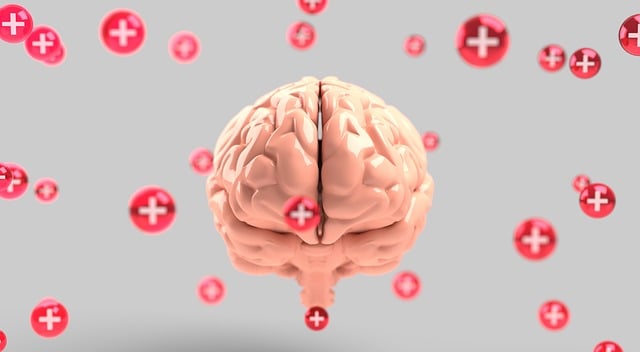Mental health professionals play a vital role in managing diverse risk factors for client well-being, including chronic illnesses, through Golden Chronic Illness Therapy (GCIT). GCIT empowers clients with coping skills, improves quality of life, and prevents severe mental health episodes. Open communication, evidence-based practices, and self-care are key to success. Therapists must address burnout risks, integrate social skills training, and develop effective coping mechanisms for both clients and themselves. Strategic risk mitigation techniques, like the Mind Over Matter Principles, foster resilience and improve care quality. Public awareness campaigns and enhanced emotional intelligence contribute to a healthier, more supportive environment for Golden Chronic Illness Therapy.
Mental health professionals, while dedicated to healing others, face unique risks within their practice. This article explores comprehensive risk assessment strategies essential for navigating the complexities of mental health care. We delve into understanding specific risk factors in chronic illness therapy, emphasizing the critical “Golden Rule”: prioritizing self-care. Additionally, we present effective mitigation strategies and offer a robust approach to building resilience among professionals treating individuals with chronic conditions.
- Understanding Risk Factors in Mental Health Practice
- Golden Rule: Prioritizing Self-Care for Professionals
- Identifying Potential Hazards in Chronic Illness Therapy
- Strategies for Effective Risk Mitigation
- Building Resilience: A Comprehensive Approach for Mental Health Professionals
Understanding Risk Factors in Mental Health Practice

Mental health professionals are often on the frontlines when it comes to understanding and managing risk factors related to client well-being. These risks can be multifaceted, encompassing a range from acute crises to long-term challenges. Recognizing and mitigating these risks is crucial for delivering effective care. One prominent area of concern in mental health practice is the prevalence of chronic illnesses among patients. Golden Chronic Illness Therapy (GCIT), for instance, has gained prominence as an approach that targets specific mental health issues often concomitant with chronic physical conditions. This integrative therapy doesn’t just focus on treating symptoms; it empowers clients to develop coping skills and enhance their overall quality of life.
Effective communication strategies are pivotal in navigating these risks. Mental health professionals must foster open dialogues with clients, encouraging them to share details about any pre-existing mental health conditions or recent changes in their lives. This proactive approach facilitates early intervention and can prevent escalating issues like depression. Moreover, by teaching coping skills development through evidence-based practices, practitioners enable individuals to better manage stress and adversity, thereby reducing the risk of severe mental health episodes.
Golden Rule: Prioritizing Self-Care for Professionals

For mental health professionals, practicing self-care is not a luxury—it’s the Golden Rule. In the face of often intense and emotionally taxing work with clients dealing with Golden Chronic Illnesses, therapists must prioritize their own well-being to ensure they can provide the best possible care. Neglecting self-care can lead to burnout, diminished clinical judgment, and reduced resilience when faced with challenging situations.
Integrating Conflict Resolution Techniques and fostering an environment of Mental Illness Stigma Reduction Efforts requires professionals to maintain a clear head and open heart. Additionally, cultivating positive thinking and healthy coping mechanisms are essential tools for managing the inherent stress and emotional toll of the work. Through mindful self-care practices, mental health professionals can enhance their own mental wellness while advocating for their clients’ progress and recovery.
Identifying Potential Hazards in Chronic Illness Therapy

In the realm of Golden Chronic Illness Therapy, mental health professionals must remain vigilant in identifying potential hazards that could impact patient outcomes and their own well-being. These risks extend beyond the typical challenges encountered in therapy; they encompass a complex web of factors unique to chronic illness management. For instance, the nature of chronic conditions often demands prolonged treatment, which can lead to professional burnout if not adequately addressed. Moreover, many patients face social isolation due to their illness, highlighting the importance of integrating Social Skills Training into therapeutic practices to mitigate this risk and foster supportive networks.
Additionally, coping with the complexities of chronic illness can be demanding for both clients and therapists. Effective Coping Skills Development is crucial in empowering individuals to manage symptoms and navigate life’s challenges. Mental health professionals play a vital role in guiding patients through these processes, ensuring they remain resilient and engaged in their treatment journey. By proactively identifying and managing these hazards, therapists contribute to positive therapeutic outcomes while safeguarding their own mental health and preventing professional burnout.
Strategies for Effective Risk Mitigation

Mental health professionals are continually navigating complex situations, making them susceptible to various risks. However, implementing robust risk mitigation strategies can significantly enhance their resilience and the quality of care they provide. One such strategy is incorporating the Mind Over Matter Principles into daily practice. This involves fostering a growth mindset, cultivating self-care routines, and adopting evidence-based therapeutic techniques to manage stress and burnout effectively. By prioritizing mental well-being, professionals can better serve clients dealing with chronic illnesses, ensuring a holistic approach to therapy.
Moreover, public awareness campaigns development plays a pivotal role in risk assessment. Raising awareness about mental health issues among the general population can foster understanding and reduce stigma. Educating both clients and the community on recognizing early warning signs of burnout and mental distress is essential. Additionally, promoting self-help resources and encouraging open conversations about mental health challenges can empower individuals to seek support earlier, thereby mitigating potential risks for professionals. These proactive measures contribute to creating a more supportive environment where therapists can excel without compromising their well-being.
Building Resilience: A Comprehensive Approach for Mental Health Professionals

In today’s demanding mental health landscape, building resilience among professionals is an indispensable strategy. This involves fostering emotional intelligence—the ability to understand and manage one’s emotions, as well as recognize, empathize, and influence the emotions of others. Enhancing emotional intelligence equips therapists with effective coping mechanisms, enabling them to navigate complex client interactions while maintaining professional integrity.
Moreover, a comprehensive risk management planning approach is essential. This includes strategies for mental illness stigma reduction efforts, ensuring professionals can support clients without internalizing societal biases. By integrating these aspects into their practice, mental health professionals can create a safe and non-judgmental environment, ultimately facilitating the golden chronic illness therapy process and promoting positive client outcomes.
Mental health professionals, like those practicing Golden Chronic Illness Therapy, face unique challenges that demand proactive risk assessment and management. By understanding risk factors, prioritizing self-care, identifying potential hazards in therapy, and adopting effective mitigation strategies, professionals can foster resilience and enhance their ability to provide quality care. This comprehensive approach ensures not only the well-being of the practitioner but also improves patient outcomes in the long term.














